Marsy's Law fight not over after Supreme Court decision as police union vows legislative 'fix'
The Florida Supreme Court’s landmark ruling that Marsy’s Law can't be used to shield the identity of police officers who use deadly force — or anyone else for that matter — marked the end of one major legal battle but perhaps not the last.
Shortly after the release of Thursday’s opinion, which arose from two fatal shootings by Tallahassee police officers, the state's largest police union vowed to push forward with legislative proposals to essentially render the decision moot. If that happens, the fight would continue at the Capitol and possibly one day wind up back in court.
Meanwhile, lawyers for the Tallahassee Democrat, USA TODAY NETWORK and other media operations joined the city of Tallahassee in praising the decision. A city attorney said records with the names of the officers who shot and killed armed suspects would be released sometime after a 15-day window in which motions can be filed in the case.
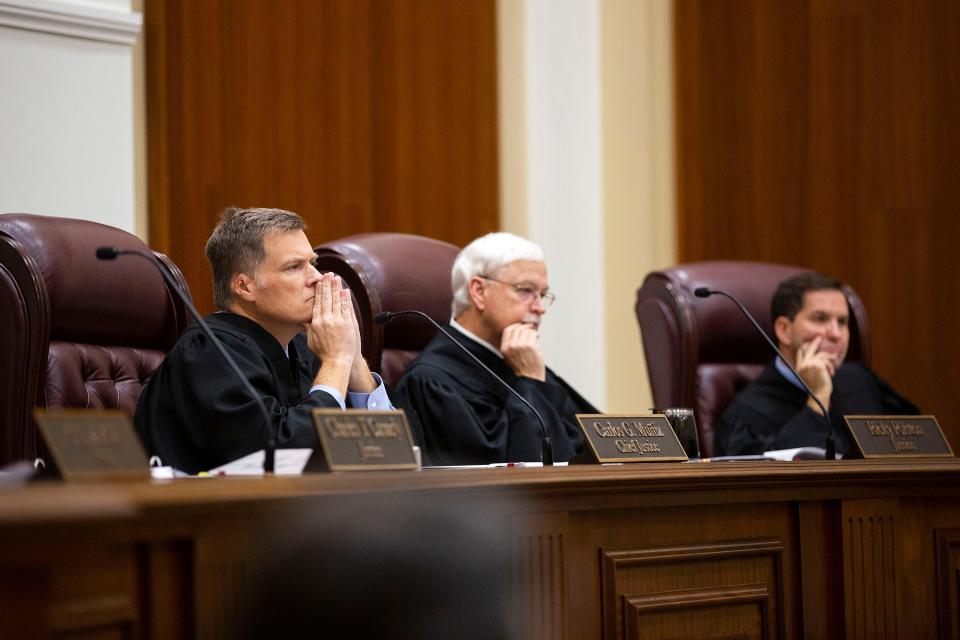
“This important legal decision will have state and nationwide impacts and validates the City’s commitment to ensuring trust in local government,” Interim City Attorney Amy McKeever Toman said in an email. “Once the court’s mandate issues and the decision is final, related public records will be released in accordance with the decision.”
It wasn’t entirely clear, however, when the Tallahassee Police Department might begin routinely releasing the names of officers who use deadly force or crime victims in general. At least one other agency in Florida, the Jacksonville Sheriff’s Office, began disclosing the names of officers who killed civilians within hours of the opinion’s release.
TPD, along with numerous other agencies across Florida, stopped releasing the names of crime victims — and police officers who considered themselves victims — after Marsy’s Law passed in 2018. The constitutional amendment included a right for crime victims to prevent disclosure of records that could be used to “locate or harass” them, which prompted agencies to redact names and other information from public records.
In a far-reaching decision that went beyond what some expected, the conservative court wrote that Marsy’s Law “guarantees to no victim — police officer or otherwise — the categorical right to withhold his or her name from disclosure.” The justices, in the 6-0 opinion, said no such right would “readily fit” with other provisions in the constitution guaranteeing the right to confront adverse witnesses in court and the right to inspect and copy public records.
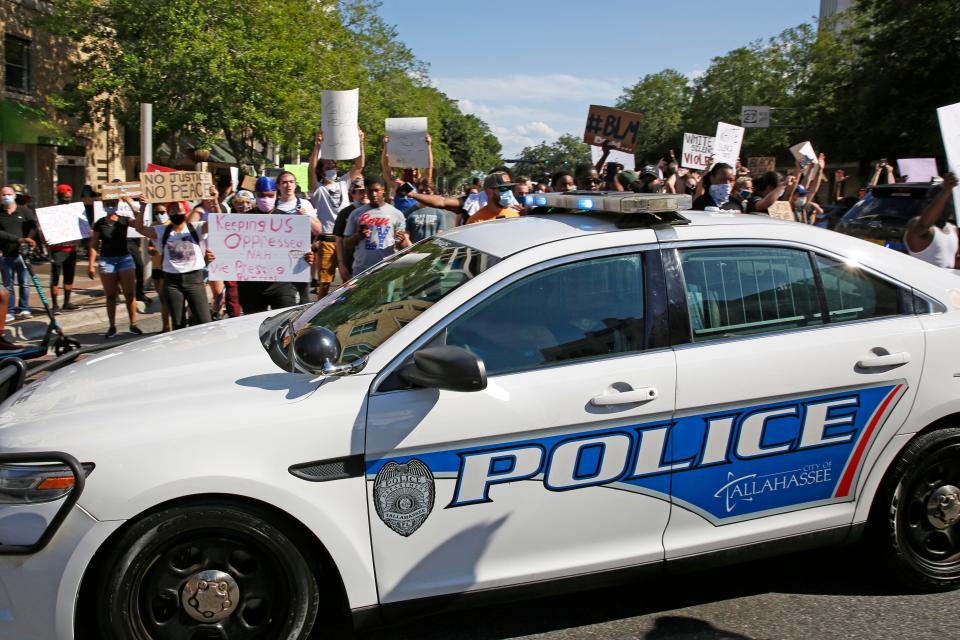
The Marsy’s Law case made it to the Supreme Court after two unrelated incidents in which TPD officers shot and killed suspects who were armed and threatening them in 2020 — the same year that saw Black Lives Matter protesters take to the streets over the killing of George Floyd and others at the hands of police.
Tony McDade, a Black transgender man who stabbed a neighbor’s son to death before aiming a gun at an officer, was fatally shot May 27, 2020, two days after Floyd’s death by Minneapolis police. Wilbon Woodard was shot and killed May 19 that year after lunging at an officer with a hunting knife.
After the city announced plans to release the officers names shortly after McDade’s death, the PBA sued to block it. That led to a circuit court ruling that Marsy’s Law wasn’t meant to shield the identities of police officers and that the public had a “vital right” to evaluate their conduct. The 1st DCA, however, reversed it, finding that protections in Marsy’s Law apply to law enforcement.
Police union vows legislative 'fix' but First Amendment lawyers say it would face constitutional hurdles
John Kazanjian, president of the Florida Police Benevolent Association board, told the Tallahassee Democrat on Friday that the union will be working with Gov. Ron DeSantis and lawmakers on legislation that would grant confidentiality to all victims of crime, including police officers.
He said he’d spoken with about a dozen lawmakers from both sides of the aisle and that he hoped to meet with DeSantis perhaps after the holidays, when the next legislative session begins. The PBA, the state’s largest police union, endorsed DeSantis’ presidential bid over the summer.
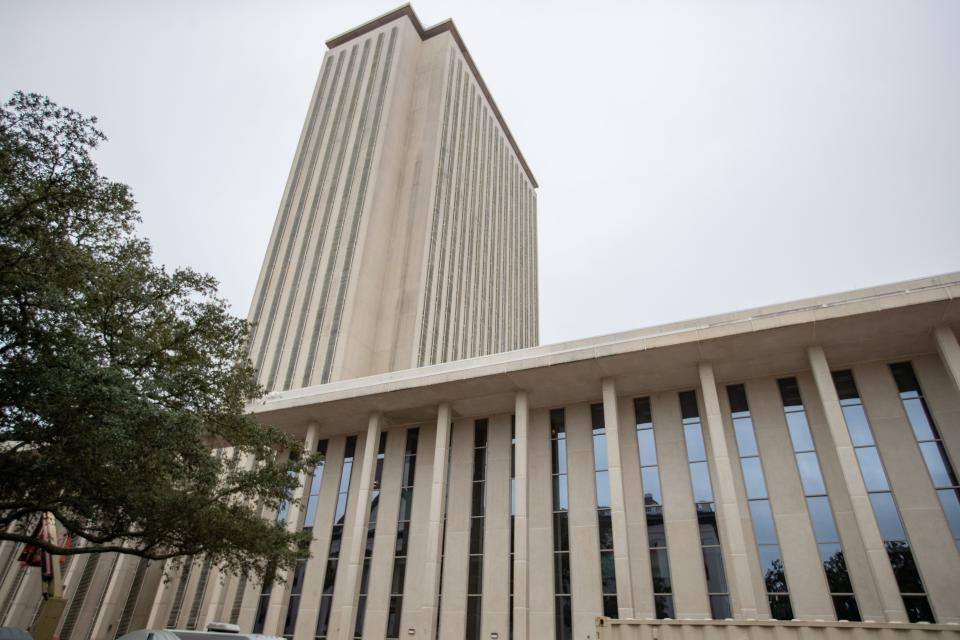
“I’ve already been getting calls from some of the legislators saying they’re on it,” said Kazanjian, who declined to name specific lawmakers. “A bunch of them want to lead the charge on this. Because listen, not only us, we’ve got to fix it for the general public, too.”
Katie Betta, a spokeswoman for the Florida Senate, said leadership was reviewing the decision. Andres Malave, a House spokesman, said, "We're evaluating the opinion to assess possible next steps."
It’s possible bills could emerge that would exempt the names of crime victims, including police, from public records. Sunshine Law exemptions require passage of two-thirds of the vote in the House and Senate.
Mark Caramanica, a Tampa attorney representing media outlets that joined the city in its legal fight, said any new legislation would raise the same legal questions answered definitively by justices in the Tallahassee case. The news consortium included the Tallahassee Democrat and its parent company, Gannett.
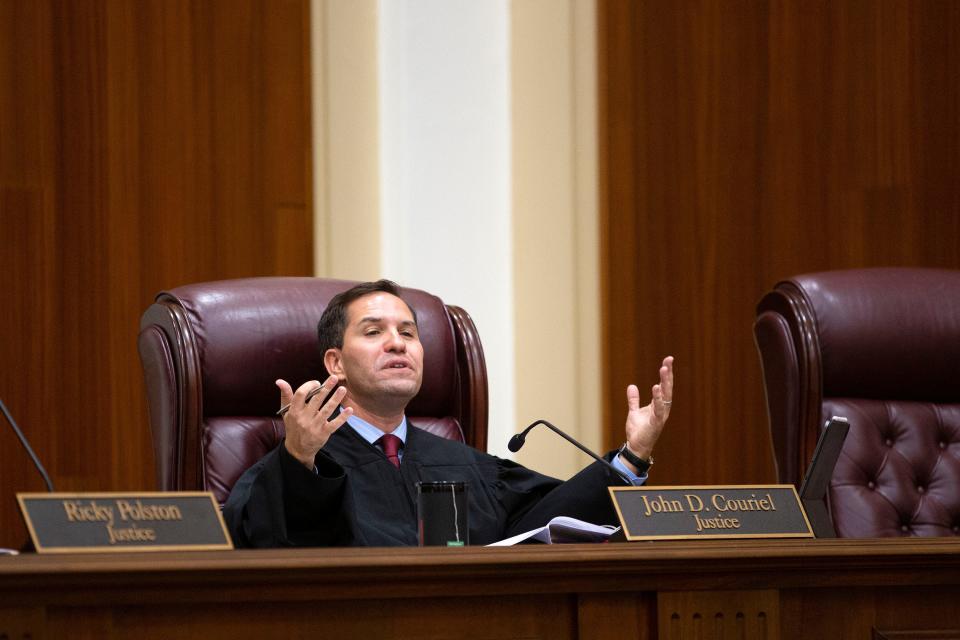
“Legislative efforts to create rights that the Supreme Court rejected in its opinion face constitutional hurdles as well,” he said. “Now that this issue has been brought to the fore, I think the citizens of Florida understand how Marsy’s Law has and can be abused and interpreted in perverse ways. And hopefully there will be a more informed debate on the wisdom of any policy that wants to restrict this information in a statutory form.”
The debate landed quickly on the campaign trail. Nick Primrose, a 2024 candidate for Florida House District 18, said he was “disappointed” in the decision and believed Marsy’s Law protects officers who were victims of a crime during the course of their duties.
“Given the Court's ruling, I'm hopeful the Legislature fast-tracks legislation when Session starts in January to codify and make clear that our law enforcement officers identities are protected when they are a victim of a crime,” said Primrose, former deputy general counsel for DeSantis.
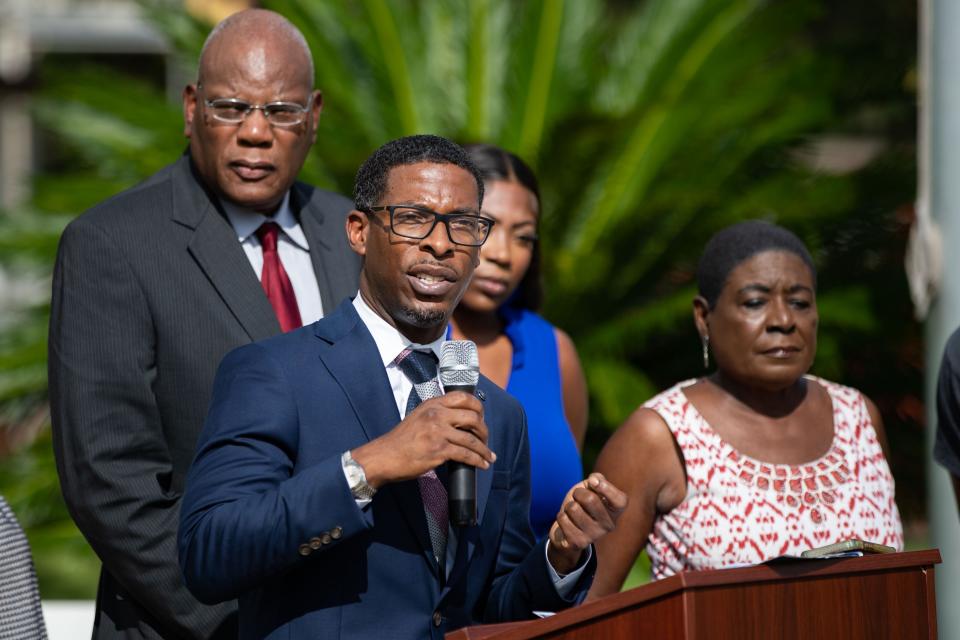
Mutaqee Akbar, the attorney for McDade's family, said they still don't know the identities of the officers who shot McDade, but Thursday's ruling should clear the way for that.
"It shows what we said three years ago, as far as law enforcement should not be shielded by Marsy's Law, and that they should not have been trying to use that law to stop the community from knowing who those officers are when they're involved in police shootings or other conduct," he said.
The Supreme Court decision came just shy of one year after oral arguments were heard in Tallahassee. It also coincided with the 40th anniversary of the murder of California college student Marsy Nicholas, which prompted the Marsy’s Law movement. After first winning voter approval in 2008 in California, the law has been enacted in 16 other states.
Contact Jeff Burlew at jburlew@tallahassee.com or 850-599-2180.
This article originally appeared on Tallahassee Democrat: Marsy's Law fight far from over after Florida Supreme Court decision

